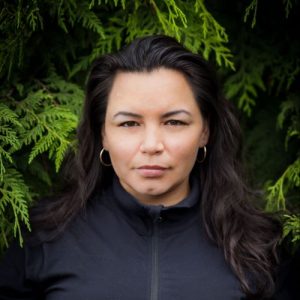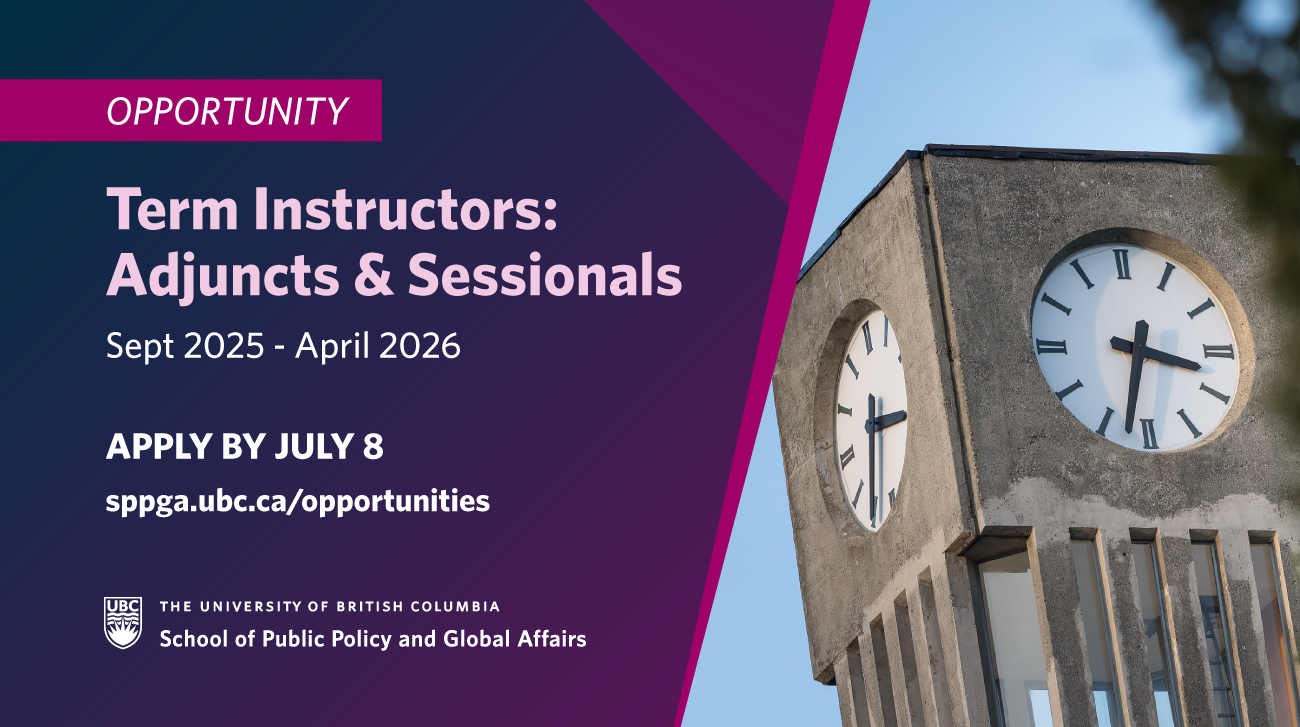Known as Si Sityaawks – (Woman who creates change) Jessica Wood is the second Policy Practitioner Fellow to join UBC’s School of Public Policy and Global Affairs (SPPGA). Jessica is from the Gitxsan and Tsimshian First Nations with extended roots among the Tahltan and Nisga’a Nations.


Currently serving as Assistant Deputy Minister for the Reconciliation Transformation and Strategies Division with the Ministry of Indigenous Relations and Reconciliation, Jessica is leading British Columbia’s cross-ministry work to adopt and implement the United Nations Declaration on the Rights of Indigenous Peoples (The Declaration), the Truth and Reconciliation Commission of Canada’s Calls to Action, and learnings from the relevant case law such as the Tsilhqot’in decision. As part of this work, she led, in collaboration with the First Nations Leadership Council, the development of legislation to implement the UN Declaration. The Declaration on the Rights of Indigenous Peoples Act received Royal Assent in November of 2019, with unanimous support from all sides of the house, affirming the minimum standards for the survival, dignity and well-being of the Indigenous peoples in what is now known as British Columbia. Currently, her Division has been leading the development of the Provincial Action Plan, in consultation and cooperation with Indigenous peoples, to support implementation.
Jessica is an experienced community developer whose portfolios have focused on issues related to race relations, residential school, sexual health, sex work, Indigenous women and gendered violence. She was the first Indigenous woman in Canada whose work as a municipal social planner focused solely on the health and safety of sex workers and impacted communities, gendered and racialized violence, and the prevention of youth sexual exploitation.
She has previously held positions working on the Residential School Settlement Agreement and the National Film Board documentary Finding Dawn, a film about missing and murdered Indigenous women in Canada. Jessica is a long-time organizer with the Vancouver DTES Women’s Memorial March Committee.
We sat down with Jessica to ask her a few questions about her career and her engagement with the UBC community as a SPPGA Fellow.
SPPGA: What have been some of the most meaningful moments in your career?
I have felt humbled throughout my career to work with talented and dynamic community leaders who have committed their life’s work to ensuring safety, security and access to equitable opportunities for Indigenous Peoples. These leaders are braiding profound changes into the fabric of our society so that we may emancipate ourselves from colonial systems and thrive for generations to come.
I’ve had the honour of working with incredible collaborators such as Métis filmmaker Christine Welsh, who mentored me through the development of Finding Dawn, a documentary that explores the genocidal scale of missing and murdered Indigenous Women in Canada. This film followed the stories of families and communities who are looking for their stolen mothers, daughters, sisters and aunties – and their efforts to interrupt and stop our women from being stolen in the first place. These people were doing the work long before either provincial or national inquiry had been contemplated.
Working on Finding Dawn led me to join the DTES Women’s Memorial March Committee that has continued to advocate for women and Two-Spirit people in the community to live free from all forms of violence and discrimination. Working with women and Two-Spirit leaders from the community for nearly two decades, I feel very privileged to have known these often unsung heroes and been counselled and kept safer through their tireless efforts.
In 2014, I was chosen to support the implementation of the BC Missing Women’s Commission of Inquiry for the City of Vancouver. This work was unique, centring a trauma-informed, sex worker-led focus on anti-violence policy and practice within the city.
Most recently, I was the instructing officer on the Declaration on the Rights of Indigenous Peoples Act. We collaborated closely with Indigenous leaders including those from the BC Assembly of First Nations, the Union of BC Indian Chiefs and the First Nations Summit, with support and guidance from their legal council and resolutions from Nations from across the province. Together we crafted a ground-breaking law that affirms the human rights of Indigenous peoples within provincial law, with related responsibilities.
The moment that law was introduced changed all that follows. On the day the bill was tabled, I sat with my family and all the Simgigyet and the Sigidimhanak’ to witness our people take the floor in the Legislature and share our law, wisdom and teachings in a way that is now respected in our provincial law. It was transformative for Indigenous peoples, for the province and for the country. Indigenous peoples and allies, many who have been adversaries over different positions and perspectives collectively witnessed and supported the affirmation of the inherent rights of Indigenous Peoples that are intrinsically connected to our humanity and now the legal jurisprudence of our provincial legal framework for the first time in Canadian history. It is a testament to Indigenous law, legal pluralism and what we can accomplish as a society when we respect, recognize and protect the inherent Human Rights of Indigenous Peoples.
SPPGA: What are you most looking forward to engaging in as a SPPGA Policy Practitioner Fellow?
Being connected to each other is more important than ever – and it is so difficult to do right now. I am looking forward to exploring ways to connect meaningfully in dialogue with my colleagues and the students of SPPGA and fostering meaningful connections of people and ideas.
I’m hoping that by sharing my experience, it will lead more students to consider a career in public service. There are so many ways to transform our worlds and the way we govern with good policy practitioners.
I’m also excited to further engage with some of the next big questions that accompany the growing movements to implement the UN Declaration in different jurisdictions and sectors with Indigenous leaders and our allies. I look forward to exploring how policy, matriarchy and Indigenous wisdom and leadership and our Adawx (laws) may guide us all towards a just and fair society.
SPPGA: Thank you Jessica.


